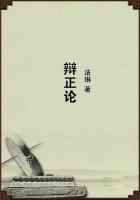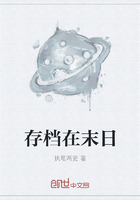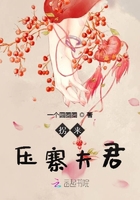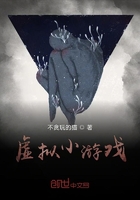Claudie is one of those young peasant girls, whom we met with in the novel entitled _Jeanne_. She had been unfortunate, but Jeanne, although virtuous and pure herself, did not despise her, for in the country there is great latitude in certain matters.
This is just the plain story, but on the stage everything becomes more dramatic and is treated in a more detailed and solemn fashion.
Claudie's misfortune causes her to become a sort of personage apart, and it raises her very high in her own esteem.
"I am not afraid of anything that can be said about me,"observes Claudie, "for, on knowing the truth, kind-hearted, upright people will acknowledge that I do not deserve to be insulted."Her old grandfather, Remy, has completely absolved her.
"You have repented and suffered enough, and you have worked and wept and expiated enough, too, my poor Claudie," he says.
Through all this she has become worthy to make an excellent marriage.
It is a case of that special moral code by which, after free love, the fault must be recompensed.
Claudie is later on the Jeannine of the _Idees de Madame Aubray_, the Denise of Alexandre Dumas. She is the unmarried mother, whose misfortunes have not crushed her pride, who, after being outraged, has a right now to a double share of respect. The first good young man is called upon to accept her past life, for there is a law of solidarity in the world. The human species is divided into two categories, the one is always busy doing harm, and the other is naturally obliged to give itself up to ****** good the harm done.
_The Mariage de Victorine_ belongs to a well-known kind of literary exercise, which was formerly very much in honour in the colleges.
This consists in taking a celebrated work at the place where the author has left it and in imagining the "sequel." For instance, after the _Cid_, there would be the marriage of Rodrigue and Chimene for us. As a continuation of _L'Ecole des Femmes_, there is the result of the marriage of the young Horace with the tiresome little Agnes. Corneille gave a sequel to the _Menteur_ himself.
Fabre d'Eglantine wrote the sequel to _Le Misanthrope_, and called it _Le Philinte de Moliere_. George Sand gives us here the sequel of Sedaine's _chef-d'oeuvre_ (that is, a _chef-d'oeuvre_for Sedaine), _Le Philosophe sans le savor._
In _Le Philosophe sans le savoir_ Monsieur Vanderke is a nobleman, who has become a merchant in order to be in accordance with the ideas of the times. He is a Frenchman, but he has taken a Dutch name out of snobbishness. He has a clerk or a confidential servant named Antoine.
Victorine is Antoine's daughter. Vanderke's son is to fight a duel, and from Victorine's emotion, whilst awaiting the result of this duel, it is easy to see that she is in love with this young man.
George Sand's play turns on the question of what is to be done when the day comes for Victorine to marry. An excellent husband is found for her, a certain Fulgence, one of Monsieur Vanderke's clerks.
He belongs to her own class, and this is considered one of the indispensable conditions for happiness in marriage. He loves her, so that everything seems to favour Victorine. We are delighted, and she, too, seems to be in good spirits, but, all the time that she is receiving congratulations and presents, we begin to see that she has some great trouble.
"Silk and pearls!" she exclaims; "oh, how heavy they are, but I am sure that they are very fine. Lace, too, and silver; oh, such a quantity of silver. How rich and fine and happy I shall be.
And then Fulgence is so fond of me." (She gets sadder and sadder.)"And father is so pleased. How strange. I feel stifled."(She sits down in Antoinc's chair.) "Is this joy? . . . I feel . . .
Ah, it hurts to be as happy as this. . . ." She bursts into tears.
This suppressed emotion to which she finally gives vent, and this forced smile which ends in sobs are very effective on the stage.
The question is, how can Victorine's tears be dried? She wants to marry young Vanderke, the son of her father's employer, instead of the clerk. The only thing is, then, to arrange this marriage.
"Is it a crime, then, for my brother to love Victorine?" asks Sophie, "and is it mad of me to think that you will give your consent?""My dear Sophie," replies Monsieur Vanderke, "there are no unequal marriages in the sight of God. A servitor like Antoine is a friend, and I have always brought you up to consider Victorine as your companion and equal."This is the way the father of the family speaks. Personally, I consider him rather imprudent.
As this play is already a sequel to another one, I do not wish to propose a sequel to _Le Mariage de Victorine_, but I cannot help wondering what will happen when Vanderke's son finds himself the son-in-law of an old servant-man, and also what will occur if he should take his wife to call on some of his sister's friends.
It seems to me that he would then find out he had, made a mistake.
Among the various personages, only one appears to me quite worthy of interest, and that is poor Fulgence, who was so straightforward and honest, and who is treated so badly.
But how deep Victorine was! Even if we admit that she did not deliberately scheme and plot to get herself married by the son of the family, she did instinctively all that had to be done for that. She was very deep in an innocent way, and I have come to the conclusion that such deepness is the most to be feared.
I see quite well all that is lacking in these pieces, and that they are not very great, but all the same they form a "theatre" apart.
There is unity in this theatrical work of George Sand. Whether it makes a hero of the natural son, rehabilitates the seduced girl, or cries down the idea of _mesalliances_, it is always the same fight in which it is engaged; it is always fighting against the same enemies, prejudice and narrow-mindedness. On the stage, we call every opinion contrary to our own prejudice or narrow-mindedness. The theatre lives by fighting. It matters little what the author is attacking.















